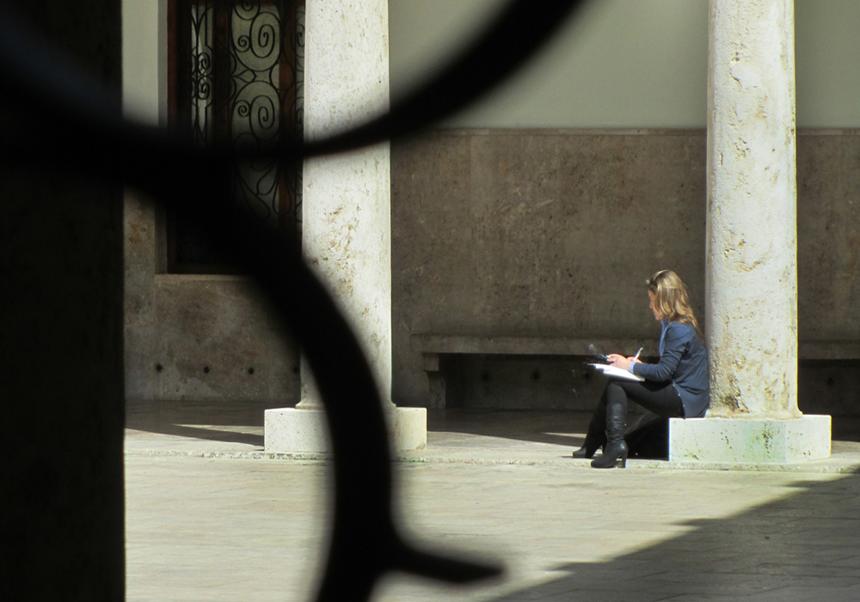
Universitat de València inaugurates this academic year cycle ‘Creator Women’ with the seminar ‘The place of women in history. Broadening the limits of historical knowledge’ on Monday 20 October, in charge of former UV Full-time university professor Isabel Morant. The seminar is organised by the Office of the Vice-Principal for Culture and Society Escola Europea de Pensament Lluís Vives and will be at the La Nau Cultural Centre until 30 March with monthly sessions on Mondays at 6:00 p.m.
It is better to know than not to. As written by Simone de Beauvoir, knowing the social and political condition influencing and determining the building of identities, the relation between sexes and the spaces women and men should take is one necessary step towards comprehending the differences and inequalities of the sexes, of women, and a step to think of the changes to be made. In these new studies, women who were represented as passive objects under the powerful emerge as outstanding subjects who overcome societal limits.
Women history is not the specific history of women. As Virginia Woolf claimed with her share of irony, it should be written: ‘as a “suplement” of history in which women could be represented on their own. A new knowledge History (with capital H) becomes incomplete and unreal without.”
Researchers and teaching personnel of multiple levels impart the cycle aimed for education professionals interested in history teaching renovation as well as those who recognise the matters unveiled from women and gender history make up a new and stimulating knowledge to reflect on ourselves, and understand and build the life and world we want. Sessions are free with previous inscriptions in this link for each session with limited seats.
Women history in six sessions
The seminar will start on Monday 20 October at 6:00 p.m. (Seminar Room, La Nau) with the session ‘La construcción de una historigrafía’ (‘The building of a historygraphy’), parttaking Isabel Morant and Full-time university professor in Secondary Education History Rosa Ríos. This will be the first meeting in which the process of building women and gender history will be addressed, starting in the 60s and 80s, with the main development lines and integration of the history in knowledge and teaching.
The second session on 10 November will be named ‘Renacimiento e Ilustración’ (‘Renaissance and Enlightenment’), in charge of Isabel Morant. The conference will revolve around the conflict of sexes in modern literature, the reflections around marriage and the femenine figure in humanist texts, as well as romantic love in Elightenment literature.
The third session on 15 December ‘Rupturas políticas y transformaciones sociales’ (‘Political disruption and social transformation’) will be in charge of Dolores Sánchez Durá, Full-time university professor in Secondary Education History. This time, the debate will be around the idea of equality and freedom in the context of the French Revolution and the liberal social order building, reflecting on the women role during these changes and processes.
Starting next year, Rosa Ríos will offer the conference ‘La creatividad de las mujeres’ (‘Women Creativity’) on Monday 19 January, dedicated to the femenine presence and agenda in art and science during the 19th and 20th centuries, a look to the intellectual and artistic production of women in the context of advance and resistance.
Continuing with the cycle on 16 February with ‘Democracias y dictaduras’ (‘Democracies and dictatorships’) in charge of Àngels García, Full-time university professor in Secondary Education History and professor of Secondary Education for the University Master’s Degree. This session examines the role of women as political subjects during the 20th century in democratic and authoritarian regimes.
The last session will be on 30 March with ‘Un nuevo sujeto político’ (‘A new political subject’) in charge of Dolores Sánchez and Carla Bezanilla-Rebollo, Université Paris 8 (Vincennes Saint-Denis) researcher. This closing session will revolve around the evolusion of feminisms and the emergence of new discourse and practice contributing to redefine contemporary political thinking.
















